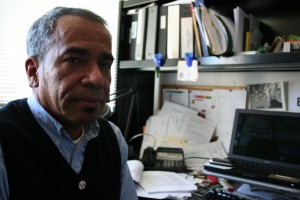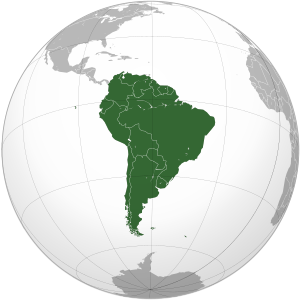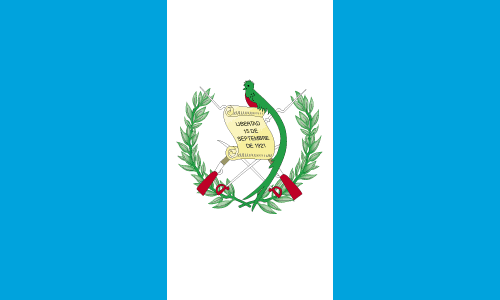Source: Mission Local
By: Lydia Chavez
As gay activists from the Castro to Lebanon commemorated International Day Against Homophobia over the weekend , those in Latin America could celebrate recent legal changes in Nicaragua and Panama that end the criminalization of homosexual acts in Central and South America.
Despite such legal progress, however, many gay Latinos continue to seek political asylum in the United States, gay rights advocates said.
“Homophobia is not something you get over overnight,” said Dusty Araujo of the National Immigrant Justice Center. Talk to political refugees and advocates like Araujo and you learn that despite evolving attitudes in Latin America, homophobic violence is still common, forcing hundreds of sexual minorities to seek asylum in the United States, many in San Francisco.
From his North Beach office cramped with floor-to-ceiling file cabinets containing archives of gay movements around the world, Araujo acts as a one-man resource to those seeking to file for asylum on the grounds of homophobic persecution. The majority of his requests come from Mexico, where same-sex unions were legalized in the capital two years ago. “Movements of people coming out and standing for their rights have helped curb some of the violence,” he said, “but it continues.”
To prove his point, Araujo punches Mexico into his computer. Aside from helping immigrants find an attorney and helping navigate the process of asylum application, his work includes maintaining an online database of anti-gay and anti-transgender violence around the world—documents that can buttress an applicant’s asylum claim.

Dusty Araujo of the National Immigrant Justice Center
Within seconds, he finds a March 13 news report of the killing of a 30-year old gay indigenous man from Oaxaca. Other recent additions include the murder of a transsexual in Chile and the arrest of a group of transvestites in Guyana.
Despite reams of evidence of anti-gay violence in those countries, receiving asylum is no easy process.
Applicants must prove they endured abuse on the part of authorities or that authorities failed to provide safety from abuse. Alternatively if, for instance, an immigrant came out of the closet after they left their native country, they must provide evidence that they legitimately fear for their safety upon returning.
“This is not something you can fake and punk your way through like a walk in the park,” Araujo said. “Many people from a particular country apply, and only a small percentage is granted.
Because the U.S. government does not distinguish between asylum applications for sexual minorities and those for other persecuted groups, no one knows for sure how many LGBT immigrants apply for asylum, and at what rate they are granted.
Araujo’s personal database of the applicants he’s helped from 1990 through 2007 offers a starting point. Of 46 applicants from Guatemala, just six were granted asylum. Of 53 from El Salvador, eight received asylum. Of 249 Mexican applicants, just 36 asylum requests were approved.
And, experts reported, the process may be getting more difficult—an ironic consequence of the recent gay legal victories in Latin America. Because countries are now perceived as more tolerant of homosexuality, they say fighting an asylum case is only getting harder.
“We have a lot of queer clients from Mexico,” said San Francisco attorney
Arwen Swink, who specializes in asylum cases for sexual minorities. Nevertheless, since Mexico City approved legal partnerships a year ago, Swink says judges are more resistant to asylum cases.
For applicants, the process can be not only long and costly, but emotionally straining. “You have to put out your life like an open book,” said Claudia Ochoa, 36, who left Guatemala for San Francisco in 2004 after living in fear for her life when she came out of the closet to her conservative family. Shortly after arriving in a new country, the immigrant had to recount the most painful chapters of her life—including childhood incest and domestic violence—to a lawyer, an immigration officer, and a courtroom.
Ochoa, who teaches private Spanish classes in the Mission District, considers herself lucky “to find the right people at the right moment.” It may not have happened, she said, if she had not landed in San Francisco.
“Here [asylum] is something more known, more heard about,” and thus within a month of immigrating here with her girlfriend on a travel visa, local friends told her about the option and the process moved quickly. If an immigrant does not apply for asylum within one year, the process becomes much more difficult.
Honduran Roberto Martinez was not so fortunate, and his experience is probably closer to the typical struggle of a gay fleeing persecution. As a teenager in a violent Honduran city, Martinez, whose name has been changed so as to not impact his case, witnessed his brother murdered by gang members, and a gay friend molested and HIV positive. “I saw these things that were happening to my friend, so I maintained that I wasn’t gay,” Martinez said recently in the office of a Mission District gay youth organization where he volunteers.
At 17 he could no longer endure the repression, and crossed two countries alone, eventually making a home in the cement plaza of San Francisco Civic Center. After four years that included drug dealing, unprotected sex, arrest, rehabilitation, and finally, a determination to help other vulnerable gay youth, promote safe sex, and attend school, Martinez now faces an order of deportation. Only this January did he learn about the option of asylum.
Since the one-year bar long since passed, Martinez has a trickier case to fight. Swink, his attorney, says he has a better chance at winning a Withholding of Removal case—similar to asylum but leaving the immigrant in a kind of legal limbo. If he wins, Swink says, “he could never leave the country, would have no path to a greencard, no path to citizenship.”
But familiar with the violent gangs of his home country and their rampant homophobia, Martinez would prefer to stay no matter the cost than return to Honduras.
“I could not walk like I do here“ Martinez said softly, a colorful scarf wrapped tight over his gray and pink sweater. “I could not have my partner, a job. I could not study. If I was seen as effeminate, it would come to a point where they could attack me, physically, verbally.”
Now living with a partner in the Mision District, Martinez is awaiting his appointment with an immigration officer, and collecting donations at drag shows to help pay his legal fees.
“I am asking the universe that the doors of political asylum open for me,” he said, plastic in his ears hinting at a hearing condition he says will eventually render him deaf. “To be able to study, go to school, to study sign language.”
Dusty Araujo said financial mobility for a Latin American gay man or woman can be very difficult. “They know that in their country, they’re not going to be able to climb the ladder of success,” Araujo said. “That ladder’s not available to them. They’re not going to be able to be important people anywhere because of their sexual orientation. So their fleeing here is partly because of their sex orientation but partly a survival mechanism, hoping that they are going to find a way to succeed in their lives.”
For Martinez, he must weigh that hope against all that he’ll give up if he wins his case. “One of the desires is to stay in this country,” he said. “One of the losses is relinquishing the right to be in your country. So you can lose a lot with your sexual orientation. I could go back into the closet, but that life I had before I don’t want. I want to continue opening wider that door.”
 Image by PhOtOnQuAnTiQuE via Flickr
Image by PhOtOnQuAnTiQuE via Flickr













 Join our page
Join our page

